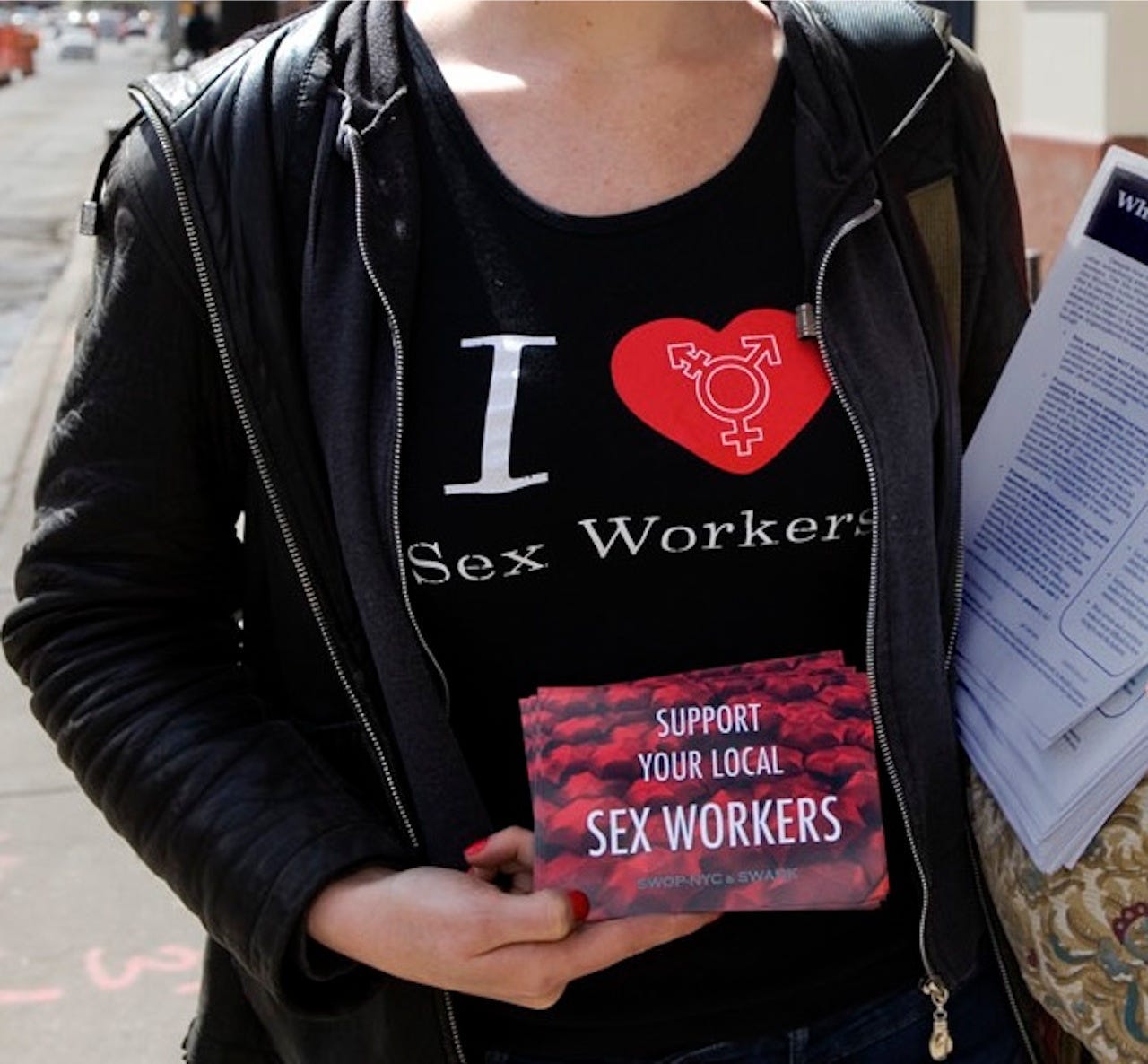Reinventing the Oldest Profession
Through business consultancies, political rallies and poetry readings, sex workers of all stripes have stepped out of the shadows.
“When I got raped,” Jodi S. Doff says plainly, as if talking about a mild bout of stomach flu, “I went to work that afternoon. I’d been kept in the house for six hours and raped and tortured and I just called in late.”
Friends and colleagues of Doff’s had been murdered, kidnapped, beaten, slapped, spit on. This was early ’80s New York, and these were strippers, “hoochy-coochy gals,” as Doff calls her former self, working the poles at places like Robbie’s Mardi Gras and the Lollipop.
“Really,” she remembers, “you looked at it like it was part of the package: you play with snakes, you’re gonna get bit.”
Doff’s rapist, a pimp who hung out in the club she worked in at the time, came in for a drink hours after he attacked her. She was battered and bruised, he was clinking a cup of ice and liquor. Doff’s bosses simply shrugged, ultimately kicking the guy out of the bar at Doff’s insistence, but welcoming him back two weeks later.
Doff knows now that she needed an exit, but …


